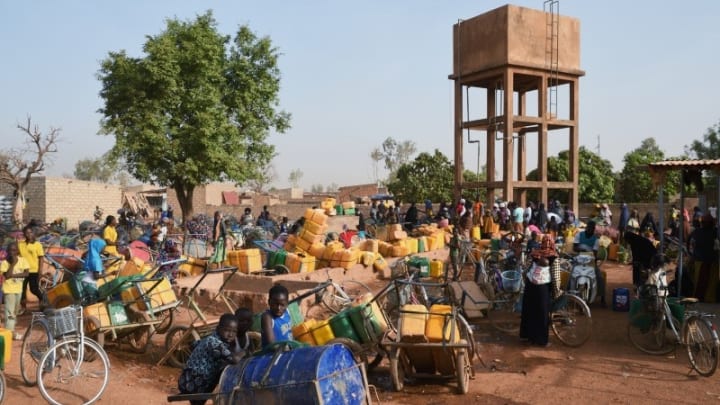The COVID-19 pandemic has highlighted the importance of long-term water, sanitation, and hygiene programming — but even so, sector professionals aren’t confident that the current focus on access to clean water and hand-washing facilities will lead to greater investment in WASH programs. They say now is the time to make the case for renewed investment.
“I don’t think [COVID-19] will automatically translate into investment for sanitation and water unless we start speaking about it, because sometimes governments and donors have a very short memory,” said Al-Hassan Adam, international coordinator at End Water Poverty, a coalition of civil society organizations that campaigns for sustainable WASH.
Unless commitments are locked in now to deliver post-crisis, they won’t happen at all, Adam warned. He urged advocates to draw donors’ attention to the issue immediately and push for commitments.
At the same time, donors’ attention is being pulled in many different directions right now, said Sue Coates, executive director ad interim at the Water Supply and Sanitation Collaborative Council, adding that the issue is crosscutting. While logic should dictate an increase in WASH investment as a result of the crisis, emergency response currently takes priority, she said.
“We have to start to pitch very loudly about needing a robust WASH sector beyond COVID. Yes, we need to respond to the emergency, but yes we also need to respond for the long-term,” she said.
Currently, 4.2 billion people live without safely managed drinking water services, while 3 billion do not have basic hand-washing facilities.
Despite its dedicated Sustainable Development Goal — SDG 6 on clean water and sanitation for all — Coates said WASH has been lagging behind from an investment perspective.
“Even when we see commitments from governments, we’re not always seeing the actual budget lines coming through to where it’s needed the most, and that’s the delivery of services,” she said. But NGOs should be able to make the case strongly for investment now, she added.
“We have to start to pitch very loudly about needing a robust WASH sector beyond COVID.”
Messages should be consistent and clear on why sanitation and hygiene are linked so closely to health outcomes and the prevention of disease. “Talk beyond diarrhea; talk about the main diseases that they can have an impact on, and use the firsthand COVID example. Don’t be scared to use it, because that really has brought it home to everybody,” she advised.
Kate Schecter, CEO of World Neighbors, said COVID-19 reinforces what the development community has been saying for years about the need for basic infrastructure that ensures people have access to water year-round. “I think there’s been an acknowledgement that these things are important, but it’s always been on the periphery. … Now, given what’s happening, there’ll be much more of an emphasis on that, I hope,” she said.
COVID-19 has already pushed some policies around water to change. Earlier this month, for example, the Ghanaian government announced free water for all for three months.
“There’s a need immediately for us to hear from the European Union, World Bank, African Development Bank, and Inter-American Development Bank that ‘this is the money we’re ringfencing for WASH.’ And we want to hear from governments ‘these are the taxes we’re ringfencing for WASH,’” Adam said.
Some of that investment should be allocated to the rights of water and sanitation workers, he added. In some countries, such as India and Pakistan, many on the front line of the outbreak — cleaners, water supply workers, and sanitation workers — are doing their jobs without proper safety equipment or basic hand-washing facilities.
“We want to see each grant or loan given for such systems — whether it’s the European Union, World Bank, or any other development bank — including at least operations and maintenance, and part of that operations and maintenance should be about investing in the safety of [water and sanitation workers] as well,” Adam said.


 Latest1 week ago
Latest1 week ago
 Business1 week ago
Business1 week ago
 Latest1 week ago
Latest1 week ago
 Football1 week ago
Football1 week ago
 Business7 days ago
Business7 days ago
 Health6 days ago
Health6 days ago
 Business1 week ago
Business1 week ago
 Business6 days ago
Business6 days ago
